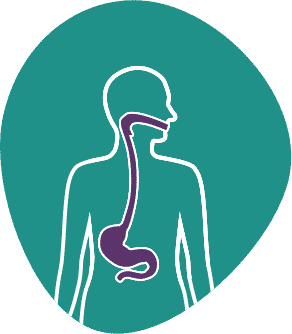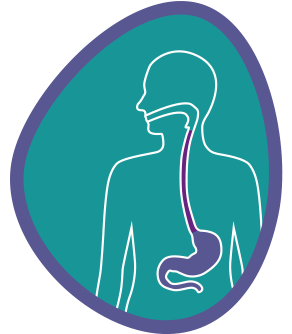How do you get a diagnosis?
Your GP may initially give you a medication to see if that can solve your symptoms. If after two to three weeks your symptoms have not gone away, he/she may refer you for an endoscopy. This is a camera which is passed down your oesophagus (with sedation if you prefer) where the endoscopist can have a look at the lining of the oesophagus and the stomach. They may take biopsies if they are unhappy about anything they see. This does not necessarily mean you have cancer; it may be that they have seen some ulceration or other changes in the normal linings.
Having test which could lead to a diagnosis of cancer is a frightening and often shocking experience. The waiting for test results and the fears generated whilst you are agonising over what could be wrong with you can be very wearing on both the patient and their loved ones.
What happens at DIAGNOSIS?
When the results of the tests are all finally done and assessed you will be called to see your consultant for the results. If the consultant tells you that you have cancer, you may hear nothing past that point in the consultation. We are often told that the rest of the appointment is a blur. It is a form of shock and quite understandable; that is why it is so important for you to take someone with you to important appointments. They will often hear things that you don’t. It is at this point that we like patients to hear about us. It is important to know that you are not alone and that we are there to support and help.


